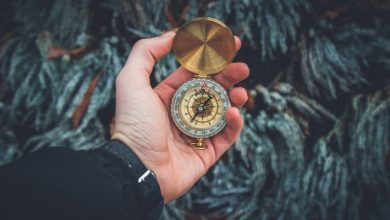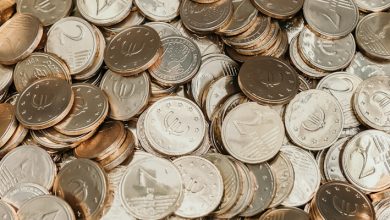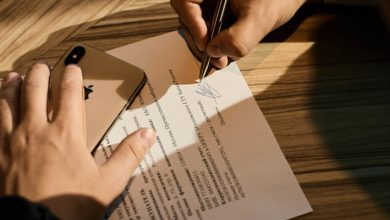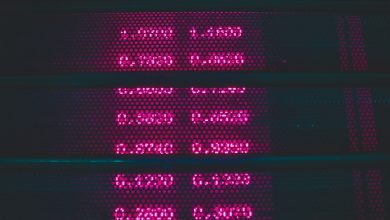What Are DAOs and How Do They Work?
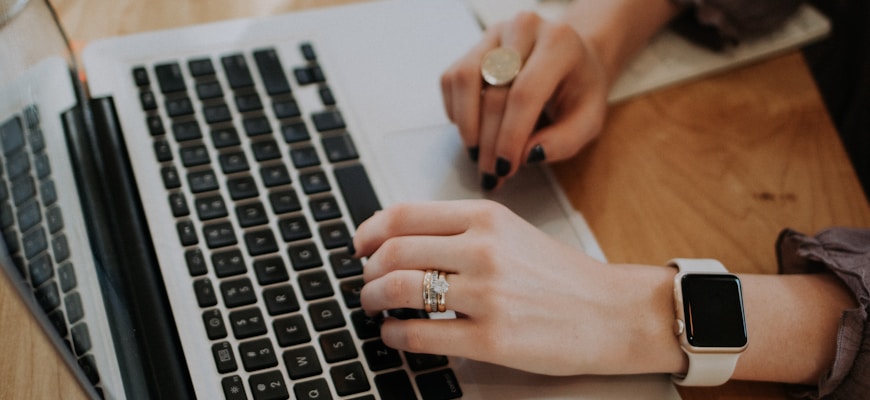
- Understanding the concept of DAOs
- Exploring the inner workings of decentralized autonomous organizations
- The evolution of DAOs and their impact on traditional organizations
- Key features that define DAOs and set them apart from other organizational structures
- Challenges and opportunities in the world of decentralized autonomous organizations
- Examples of successful DAOs and their contributions to various industries
Understanding the concept of DAOs
Decentralized Autonomous Organizations (DAOs) are a revolutionary concept in the world of blockchain technology. DAOs are essentially self-governing organizations that operate through smart contracts on a blockchain. These organizations are run by a group of individuals who come together to make decisions collectively, without the need for a centralized authority.
DAOs are designed to be transparent, secure, and autonomous. They use blockchain technology to ensure that all transactions and decisions are recorded on a public ledger that cannot be altered. This transparency helps to build trust among members of the organization and allows for greater accountability.
One of the key features of DAOs is their ability to operate without the need for intermediaries. This means that transactions can be carried out directly between members of the organization, without the need for a third party to oversee the process. This not only reduces costs but also minimizes the risk of fraud or corruption.
DAOs operate based on a set of rules and protocols that are encoded in smart contracts. These contracts automatically execute the terms of an agreement when certain conditions are met. This eliminates the need for human intervention in most cases, making the organization more efficient and reliable.
Overall, DAOs represent a new way of organizing and governing communities in a decentralized and democratic manner. By leveraging blockchain technology, DAOs are able to create trustless systems that operate transparently and efficiently, paving the way for a new era of decentralized governance.
Exploring the inner workings of decentralized autonomous organizations
Decentralized Autonomous Organizations (DAOs) are a revolutionary concept that leverages blockchain technology to create self-governing and self-operating entities. These organizations operate without the need for centralized control, allowing for more transparent and efficient decision-making processes. By exploring the inner workings of DAOs, we can gain a better understanding of how they function and their potential impact on various industries.
One key aspect of DAOs is their use of smart contracts, which are self-executing contracts with the terms of the agreement directly written into code. This eliminates the need for intermediaries and ensures that all transactions are carried out automatically once the conditions are met. Smart contracts play a crucial role in the functioning of DAOs, enabling them to operate in a trustless and decentralized manner.
Another important feature of DAOs is their governance structure, which allows token holders to participate in decision-making processes. Through a voting mechanism, token holders can propose and vote on changes to the organization’s operations, such as funding proposals or changes to the code. This democratic approach to governance ensures that all stakeholders have a say in the direction of the DAO.
Furthermore, DAOs often utilize a reputation system to incentivize active participation and discourage malicious behavior. Token holders who contribute positively to the organization earn reputation points, which can give them more influence in decision-making processes. On the other hand, those who act against the interests of the DAO may lose reputation points, reducing their voting power.
Overall, exploring the inner workings of DAOs reveals a new paradigm of organizational structure that is transparent, efficient, and inclusive. By leveraging blockchain technology and smart contracts, DAOs have the potential to revolutionize traditional business models and empower individuals to participate in decentralized decision-making processes.
The evolution of DAOs and their impact on traditional organizations
DAOs have been gaining traction in recent years, revolutionizing the way organizations operate. These decentralized autonomous organizations are built on blockchain technology, allowing for transparent and efficient decision-making processes. One of the key impacts of DAOs on traditional organizations is their ability to eliminate the need for intermediaries and central authorities. This not only reduces costs but also increases trust among members.
As DAOs continue to evolve, they are challenging traditional organizational structures by promoting a more democratic and inclusive approach to governance. Members of a DAO have equal voting power, regardless of their financial contribution, which promotes fairness and equality within the organization. This shift towards decentralized decision-making is reshaping the way businesses and communities operate, leading to more transparent and resilient systems.
Furthermore, DAOs are enabling new forms of collaboration and coordination among individuals who may not have met otherwise. By harnessing the power of smart contracts, DAO members can execute agreements without the need for trust or reliance on a central authority. This has the potential to unlock new opportunities for innovation and creativity, as individuals from diverse backgrounds come together to work towards a common goal.
Key features that define DAOs and set them apart from other organizational structures
One of the key features that distinguish DAOs from other organizational structures is their decentralized nature. Unlike traditional companies that have a centralized authority figure making decisions for the entire organization, DAOs operate on a distributed network of participants who collectively make decisions through voting mechanisms. This decentralized approach ensures that no single entity has ultimate control over the organization, promoting transparency and reducing the risk of corruption.
Another defining feature of DAOs is their use of smart contracts, which are self-executing contracts with the terms of the agreement directly written into code. These smart contracts automate many of the processes within a DAO, such as voting, fund allocation, and governance. By leveraging smart contracts, DAOs can operate autonomously without the need for intermediaries, reducing costs and increasing efficiency.
Furthermore, DAOs are often governed by a set of rules and protocols that are enforced by the underlying blockchain technology. These rules dictate how decisions are made, how funds are allocated, and how members are incentivized to participate in the organization. By codifying these rules on the blockchain, DAOs can ensure that all actions are transparent, verifiable, and irreversible, creating a trustless environment for all participants.
In addition, DAOs are open to anyone who wants to join and contribute to the organization, regardless of their background or location. This inclusivity allows DAOs to tap into a global talent pool and benefit from diverse perspectives and skill sets. By removing barriers to entry, DAOs can foster innovation and creativity, leading to more dynamic and resilient organizations.
Overall, the key features that define DAOs – decentralization, smart contracts, blockchain governance, and inclusivity – set them apart from traditional organizational structures and pave the way for a new era of collaborative and autonomous organizations.
Challenges and opportunities in the world of decentralized autonomous organizations
Decentralized autonomous organizations (DAOs) present a unique set of challenges and opportunities in the world of blockchain technology. One of the main challenges facing DAOs is the need to establish trust among participants who may be located in different parts of the world and have different cultural backgrounds. This can be achieved through transparent governance structures and smart contracts that automatically execute decisions based on predefined rules.
Another challenge is the potential for security vulnerabilities in the code that powers DAOs. In the past, DAOs have been subject to attacks that resulted in the loss of funds. To mitigate this risk, developers need to conduct thorough security audits and regularly update the code to address any potential vulnerabilities.
On the flip side, DAOs also offer exciting opportunities for innovation and collaboration. By removing the need for intermediaries, DAOs enable more efficient decision-making processes and reduce transaction costs. This can lead to new business models and decentralized applications that have the potential to disrupt traditional industries.
Furthermore, DAOs can empower individuals to participate in governance and decision-making processes in a way that was previously not possible. This can lead to more inclusive and democratic systems that give a voice to marginalized communities and promote greater transparency and accountability.
Examples of successful DAOs and their contributions to various industries
Several examples of successful decentralized autonomous organizations (DAOs) have emerged in recent years, making significant contributions to various industries. These DAOs have revolutionized the way organizations operate by utilizing blockchain technology and smart contracts to create transparent and decentralized decision-making processes.
- The DAO: One of the first notable DAOs, The DAO was created in 2016 as a venture capital fund to invest in Ethereum-based projects. Despite facing controversy due to a security breach, The DAO demonstrated the potential of DAOs to efficiently pool resources and make investment decisions through decentralized voting mechanisms.
- MolochDAO: MolochDAO, founded in 2019, is a grant-giving DAO focused on funding Ethereum infrastructure projects. By enabling community members to collectively allocate funds, MolochDAO has played a crucial role in supporting the development of the Ethereum ecosystem.
- MakerDAO: MakerDAO is a decentralized lending platform that allows users to generate stablecoins by locking in collateral. Through its governance token MKR, MakerDAO holders can participate in decision-making processes such as setting interest rates and managing risk parameters.
These examples illustrate how DAOs have the potential to disrupt traditional organizational structures and empower communities to govern themselves in a more transparent and efficient manner. As DAO technology continues to evolve, we can expect to see even more innovative use cases emerge across various industries.
